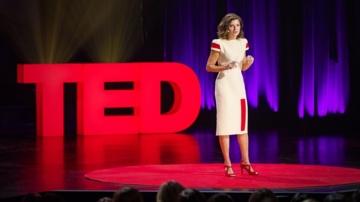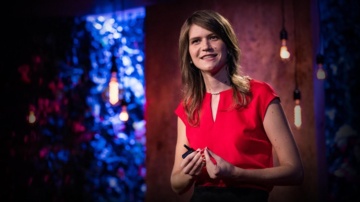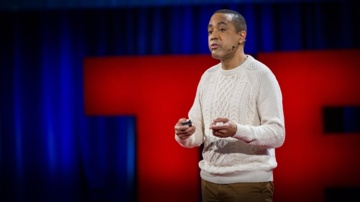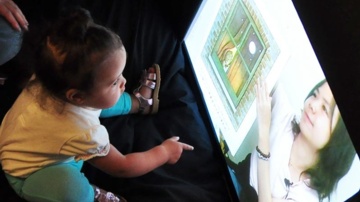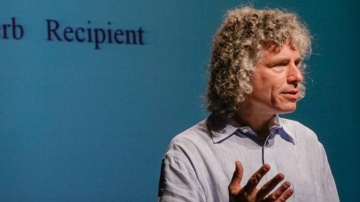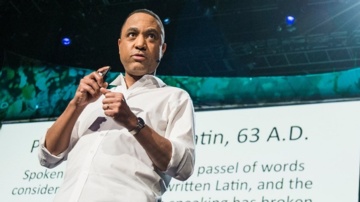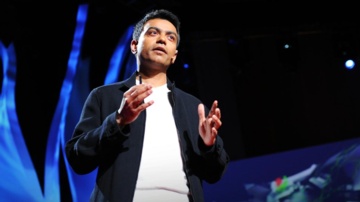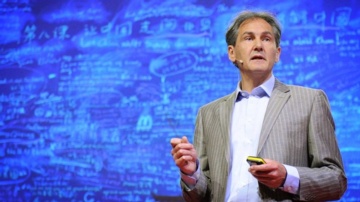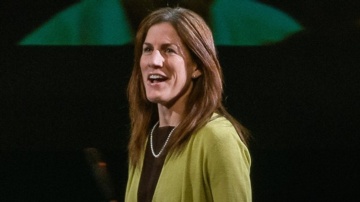1. How Language Shapes the Way We Think
There are about 7,000 languages spoken around the world – and they all have different sounds, vocabularies and structures. But do they shape the way we think? Cognitive scientist Lera Boroditsky shares examples of language – from an Aboriginal community in Australia that uses cardinal directions instead of left and right to the multiple words for blue in Russian.
2. The Secrets of Learning a New Language
Want to learn a new language but feel daunted or unsure where to begin? You don't need some special talent or a "language gene," says Lýdia Machová. In an upbeat, inspiring talk, she reveals the secrets of polyglots (people who speak multiple languages) and shares four principles to help unlock your own hidden language talent – and have fun while doing it.
3. Learn to Read Chinese... with Ease!
For foreigners, learning to speak Chinese is a hard task. But learning to read the beautiful, often complex characters of the Chinese written language may be less difficult. ShaoLan walks through a simple lesson in recognizing the ideas behind the characters and their meaning – building from a few simple forms to more complex concepts. Call it Chineasy.
4. 4 Reasons to Learn a New Language
English is fast becoming the world's universal language, and instant translation technology is improving every year. So why bother learning a foreign language? Linguist and Columbia professor John McWhorter shares four alluring benefits of learning an unfamiliar tongue.
5. The Linguistic Genius of Babies
At TEDxRainier, Patricia Kuhl shares astonishing findings about how babies learn one language over another – by listening to the humans around them and "taking statistics" on the sounds they need to know. Clever lab experiments (and brain scans) show how 6-month-old babies use sophisticated reasoning to understand their world.
6. What Our Language Habits Reveal
In an exclusive preview of his book The Stuff of Thought, Steven Pinker looks at language and how it expresses what goes on in our minds – and how the words we choose communicate much more than we realize.
7. Txtng is killing language. JK!!!
Does texting mean the death of good writing skills? John McWhorter posits that there's much more to texting – linguistically, culturally – than it seems, and it's all good news.
8. The Birth of a Word
MIT researcher Deb Roy wanted to understand how his infant son learned language – so he wired up his house with videocameras to catch every moment (with exceptions) of his son's life, then parsed 90,000 hours of home video to watch "gaaaa" slowly turn into "water." Astonishing, data-rich research with deep implications for how we learn.
9. Beautiful New Words to Describe Obscure Emotions
John Koenig loves finding words that express our unarticulated feelings – like "lachesism," the hunger for disaster, and "sonder," the realization that everyone else's lives are as complex and unknowable as our own. Here, he meditates on the meaning we assign to words and how these meanings latch onto us.
10. How Language Transformed Humanity
Biologist Mark Pagel shares an intriguing theory about why humans evolved our complex system of language. He suggests that language is a piece of "social technology" that allowed early human tribes to access a powerful new tool: cooperation.
11. What Makes a Word "Real?"
One could argue that slang words like 'hangry,' 'defriend' and 'adorkable' fill crucial meaning gaps in the English language, even if they don't appear in the dictionary. After all, who actually decides which words make it into those vaulted pages? Language historian Anne Curzan gives a charming look at the humans behind dictionaries, and the choices they make on a constant basis.
12. Go Ahead, Make up New Words!
In this fun, short talk from TEDYouth, lexicographer Erin McKean encourages – nay, cheerleads – her audience to create new words when the existing ones won't quite do. She lists out 6 ways to make new words in English, from compounding to "verbing," in order to make language better at expressing what we mean, and to create more ways for us to understand one another.

